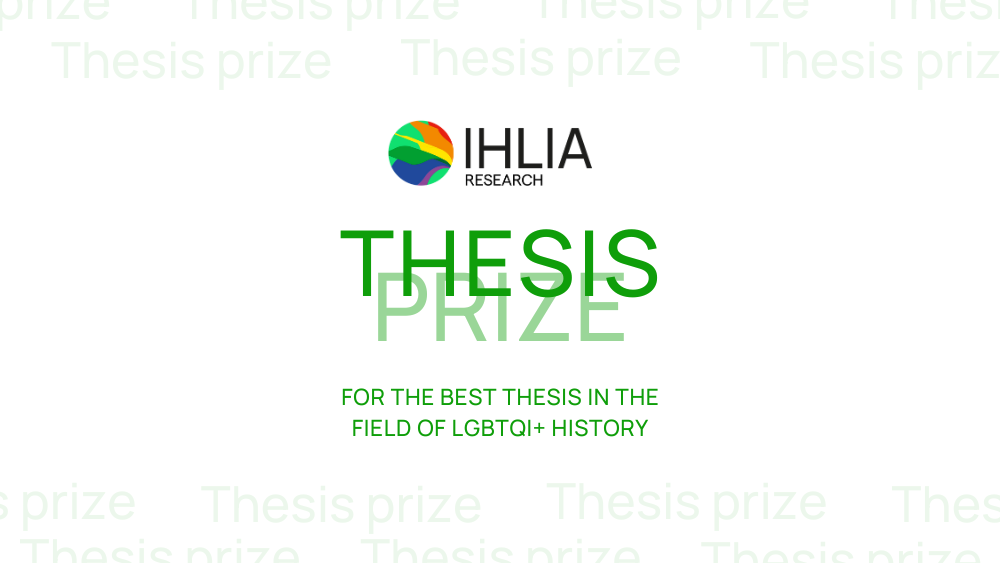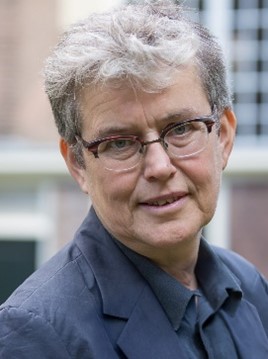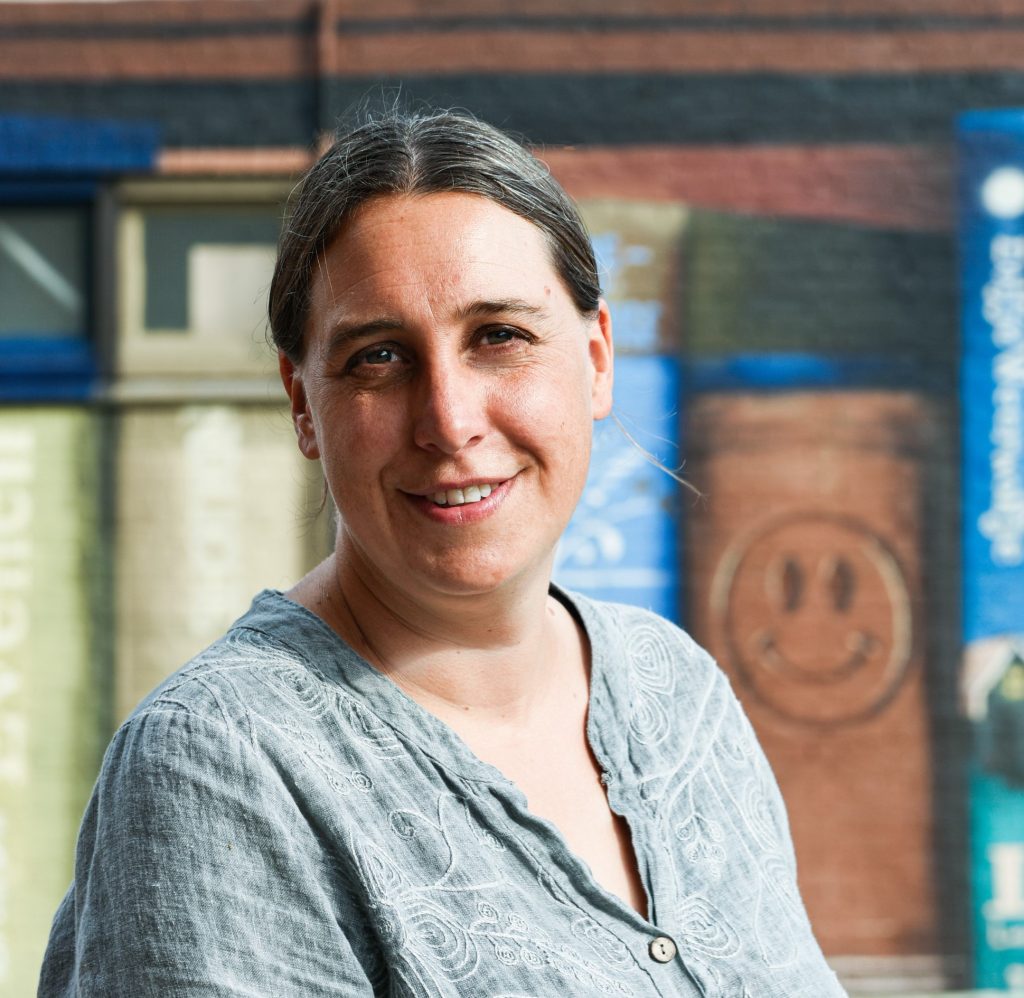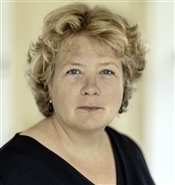For the best thesis in the field of LGBTQI+ history
Voor Nederlands klik hier

Every year, dozens of students at universities write a thesis on a subject in the field of LGBTQI+ history. Unfortunately, much of this material disappears into the proverbial drawer. That is a pity, of course. To make this research more visible and to reward it, IHLIA presents a biannual thesis prize for the best LGBTQI+ historical thesis in Flanders and the Netherlands.
The next award ceremony will take place in 2026.
It is currently no longer possible to submit your thesis for the 2026 edition.
Eligible for the prize are both English and Dutch theses that:
- have an LGBTQI+ historical angle
- have been written at a Dutch or Flemish institute for university education;
- have been awarded a mark of at least 7,5 (NL) or 15 (BE) or more;
- were written in the academic years 2023-2024 and 2024-2025 (i.e. between September 2023 and September 2025).
The author of the winning thesis:
- receives an amount of €750;
- will be able to edit his/her/their thesis into an article that will be published in the magazine Historica (provided it is positively assessed by the editors).
Entrants agree to the inclusion of their thesis in the archive of IHLIA LGBTI Heritage.
If none of the submitted theses meet the quality requirements of the jury, the jury reserves the right not to award a thesis prize.
Jury 2026

Geertje Mak (chair) is professor of the Political History of Gender at the University of Amsterdam and researcher at the KNAW’s NL-Lab. Since 1988 she has been publishing on cross-border sexes in relation to the idea of gender as identity. Important publications include Masculine Women. On gender boundaries in the nineteenth century (1997) and Doubting Sex. Inscriptions, Bodies and Selves in Nineteenth Century Hermaphrodite Case Histories (2012). She recently published’The Sex of the Self and Its Ambiguities, 1899–1964’ in The Palgrave Handbook of the History of Human Sciences. She also focuses on colonial history and race in the history of science.
Mariecke van den Berg is professor by special appointment of Feminism and Christianity at Radboud University in Nijmegen (Catharina Halkes chair) and associate professor of religion and gender at VU University Amsterdam. Her research focuses on public debates on religion, gender and sexuality, for example on the opening of marriage to same-sex couples (‘gay marriage‘) and on religious conversion, such as that of football player Franck Ribéry. In addition, she is engaged in reinterpreting the Christian tradition by developing feminist and queer theology. She is a member of the editorial board of the international peer-reviewed journal Religion & Gender.


Marijke Huisman is assistant professor in Public History at Utrecht University. Her research is on relationships between public and academic forms of historiography, often focusing on emancipatory histories and auto/biographical representations of the past. She published, among others, about queer bookshop Savannah Bay and is currently writing a Queer history of the Netherlands. She volunteers in the collective Queer U Stories, about LGBT histories of Utrecht.
Jonas Roelens is a postdoctoral researcher at Ghent University, where he teaches gender history. In 2018 he defended his dissertation on the repression and perception of sodomy in the early modern Southern Netherlands. For this, in 2019 he was awarded both the public and jury prizes of the Flemish PhD Cup and the Erik Duverger Prize. He has published extensively in international academic journals and regularly engages in science communication about his research. He is co-author of the book Silent Desire. A history of homosexuality in Belgium (2017). In 2024, he published Citizens and Sodomites. Persecution and Perception of Sodomy in the Southern Low Countries, 1400-1700.

Regulations
Read the Thesis and jury regulations
Edition 2024
Descendants of Sodom: A History of Pleasure in Lima (1950-1982). – Diego Galdo-González (University of Amsterdam)
From the jury report:
According to the jury the author took us to the city of Lima, Peru, and took us through oral history into the history of a group known as Maricones. The author chooses as a theoretical and practical starting point the question of how Maricones sought erotic pleasure.
Edition 2022
In 2022, IHLIA LGBTI Heritage awarded the IHLIA Thesis Prize for the first time. The winner is Robbe Himpe, who researched homosexual fatherhood in Flanders.
